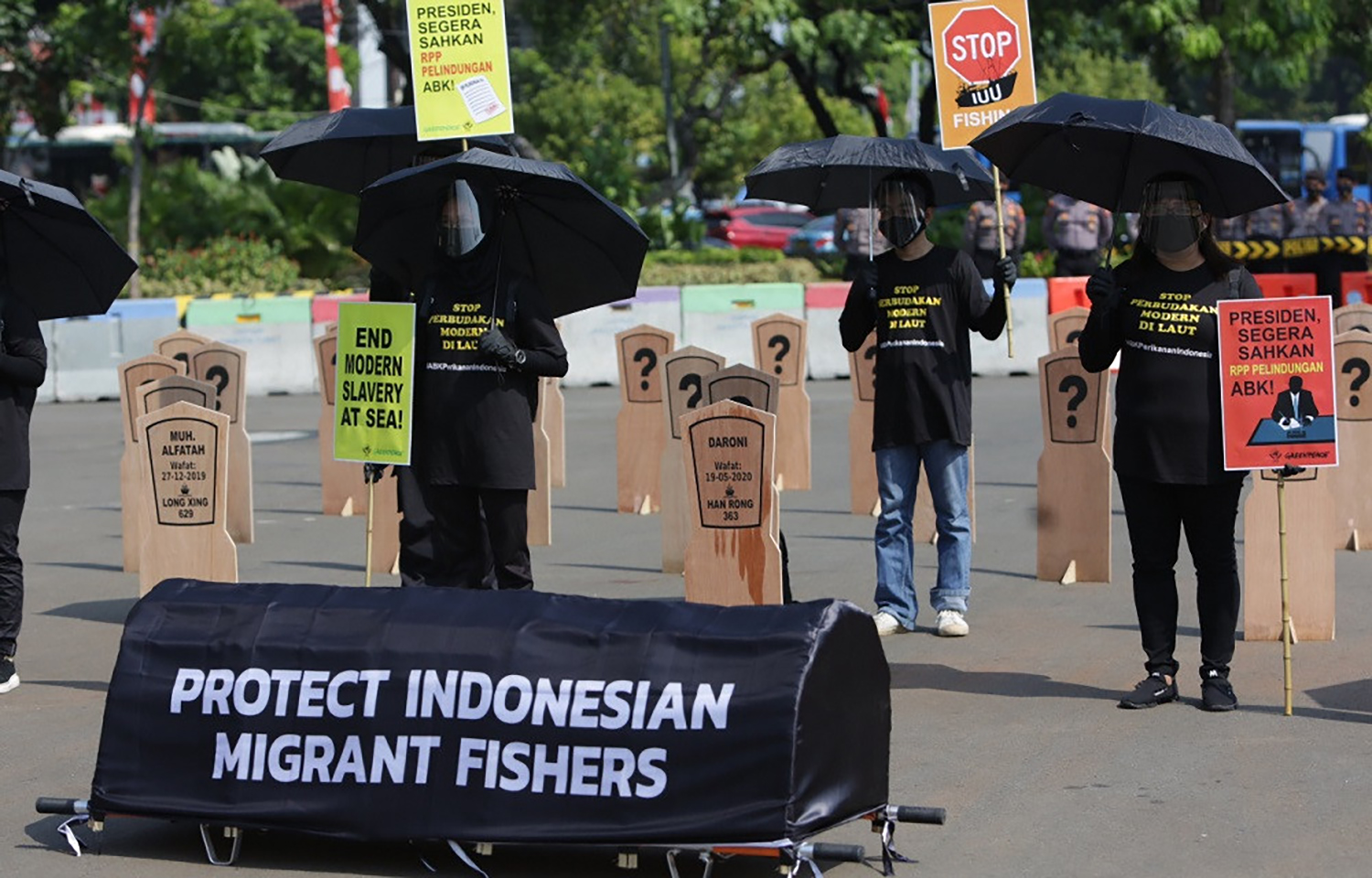A coalition of seven labor unions in Indonesia and Taiwan is imploring both countries’ authorities to reach an agreement that ensures the rights of Indonesian migrant fishers recruited to work on Taiwanese fishing vessels.
The Coalition for the Protection of Indonesian Migrant Fishers in Taiwanese Fishing Vessels, which claims to represent more than 30,000 fishers globally, is aiming to further this cause through a more unified front.
“We’re calling on Taiwan to follow international best practices and live up to its commitment to support labor rights for all workers, including in international agreements,” said Achmad Mudzakir, the chairman of the Indonesian Seafarers Gathering Forum (FOSPI) and one of the coalition’s organizers.
The coalition said Taiwanese authorities are moving too slowly on “fundamental labor rights and decent work,” including in such areas as freedom of association, anti-retaliation, collective bargaining agreements, and access to Wi-Fi aboard vessels for the 22,000 Southeast Asian migrants it says work on around 1,000 Taiwanese distant-water fishing vessels.
Ensuring Wi-Fi on vessels has been a particular priority for coalition member Global Labor Justice–International Labor Rights Forum (GLJ-ILRF). The group sees internet connectivity as a key tool to stamping out labor abuses like unpaid wages and unreported injuries while also enabling global seafood brands to verify labor standards on vessels and allowing workers to contact their families during long stretches at sea.
On 6 May, the Indonesian government formally heard the coalition’s demands at a focus group in Jakarta convened by the country’s Ministry of Foreign Affairs that centered on the protection of Indonesian migrant fishers. Various government departments sent representatives to the meeting, and Indonesian authorities have since agreed that the placement of sea-based migrant workers "needs to be regulated in a dedicated arrangement," the coalition said.
The coalition said it has also communicated these demands to Taiwans' Fisheries Agency, as well as its Ministry of Labor, Ministry of Foreign Affairs, and the Indonesian Economic and Trade Office in Taipei and the Taipei Economic and Trade Office in Jakarta. Taiwanese authorities have not yet responded to the demands, it said.
“We want a seat at the negotiating table so we can protect the fishers who bring dinner to Taiwan’s tables,” said Syofyan, the secretary general of the Indonesian Transport Workers Union (SAKTI).
The coalition said Taiwan's government has not yet done enough on the issue, reiterating longstanding complaints about shortcomings in Taiwan's oversight of its distant-water fishing industry.
However, Taiwanese ministers speaking at the recent International Forum on Fisheries and Human Rights in Kaohsiung, Taiwan, said the 2022 implementation of Taiwan’s Action Plan for Fisheries and Human Rights marks a milestone in improving management of the fleet. The Taiwan Fisheries Agency said Taiwan’s approval of the International Labor Organization’s (ILO) Work in Fishing Convention (ILO-C188) is proof of the country's determination to protect its fishery workers.
“The nation is proactively incorporating ILO-C188 into domestic law, which demonstrates that crew members’ rights and benefits are highly valued,” Lo Ping-cheng, the minister without portfolio of Taiwan’s Executive Yuan, said at the forum. “Taiwan’s government is also currently incorporating the International Convention on the Protection of the Rights of All Migrant Workers and Members of Their Families, which grants protection not only to migrant crew members but also to all migrant workers and will be enhanced in the future.”
Taiwan plans to draw on ...








